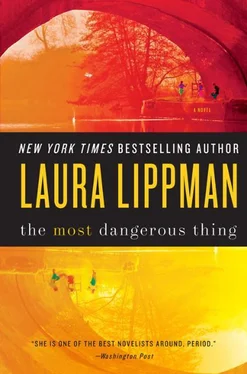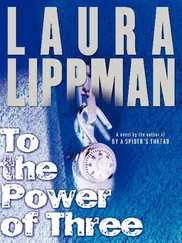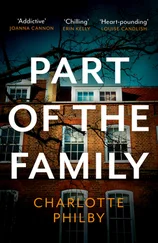He waits to talk to her until he has showered and dressed, picking a collared shirt, one he knows she likes on him. She is in the family room, sewing something. Vivian is seldom at rest and she expects Sean and Duncan to follow suit. To be productive, almost every waking hour, is her goal. But Sean has earned his beer, the right to have the television on mute, baseball scores scrolling by. He still thinks of the Orioles as his team. They still break his heart on a regular basis.
“Duncan says he’s planning to go to New Orleans over school break.”
“Yes,” she says, biting a piece of thread. “With a group from church. I think it’s a great idea.”
“The thing is, my mom is pretty fragile right now and I think it’s important for all of us to go see her.”
“Certainly you should go. I understand.”
This is how she does it, he thinks. She doesn’t even acknowledge there’s another side to the issue. She’s seizing the high ground, being magnanimous for allowing him to go see his mother.
“She loves Duncan, dotes on him. It would be great if he were there, too.”
“I’m sure she’ll understand when you explain how important this is to his college applications.”
“But how do I explain you not being there?”
“Oh, honey-it’s New Orleans. I wouldn’t feel comfortable if I wasn’t one of the chaperones. It’s a very dangerous city. I’ll make you miserable, worrying about Duncan, so I might as well go.”
He wants to argue on principle, then thinks Fuck it . He’ll go back to Baltimore, stay with his mom, something Vivian abhors, although she never admits it. But when forced to spend even a night in his boyhood home, she goes through the day murmuring, murmuring, murmuring, keeping up a running litany of disapproval that pretends to be disinterested commentary, as she ticks off everything that bothers her about the house, about Dickeyville, about Baltimore. It’s been years since they’ve stayed under his mother’s roof as a family.
Sean will go home, spend the long Easter weekend, look up some old friends. Maybe even check in with McKey, if only to assure himself that what didn’t happen between them definitely didn’t happen between them. And if it did-if he’s already cheated-then doesn’t he deserve to remember it?
D oris sits in the chair where her husband died, reading a mystery novel. She goes through two or three a week. As she tried to tell Tim Junior when he bought her that ridiculous plasma thing, she has little use for television these days. It makes her jumpy, and the more channels and control she allegedly has over it, the more she feels in its control. She was happy with the five local channels and rabbit ears.
But she can read when and wherever she wants. Her favorites are the modern American versions of the old-fashioned English mysteries, with a dash of humor. She likes series because she likes the details that repeat-the beloved restaurants, the irascible but adorable landlords, the kooky families, the on-again, gone-again boyfriends.
She reads in Tim’s old chair because it has the best light and is also the most comfortable. It has been reupholstered, but only because Arlene insisted. It’s not as if it were stained or marred in any way. Thoughtful girl that she is, Arlene wrapped the chair project inside the larger job of redoing the living room, but Doris knew that she thought the chair bothered her. It’s funny about Arlene-as much time as they spend analyzing other people, it never seems to occur to her that Doris parses her motives as well. Luckily, Arlene is unfailingly well intentioned. The fact is, if the chair harbored bad memories, no mere slipcover could redeem it.
But Doris no longer imbues objects with any kind of significance or meaning. She did that for a long time, too long. In a house of rowdy boys, it was hard to have nice things, so she cherished the ones she managed to protect from their roughhousing. Then one day Go-Go broke a pitcher that Father Andrew had given her. Waterford crystal, brought back from his summer vacation in Ireland. She caught Go-Go holding it one afternoon and yelled at him to put it away. Startled, he dropped it.
He was thirteen, too large to paddle, yet she paddled him anyway. And he slapped her. It was the most shocking thing that ever happened to Doris. Even Go-Go was appalled, bursting into tears. Doris sobbed, too, hugging him fiercely, something else for which he was too large, too old. He begged her not to tell his father, or even his brothers, about the slap. She had no desire to tell anyone. In Doris’s opinion, Go-Go was right to slap her. Yes, he had dropped the pitcher, but only because she yelled at him. No, he shouldn’t have picked it up in the first place, but it was a beautiful thing in a house with very few beautiful things. She couldn’t blame him for wanting to touch it, even if he had been explicitly forbidden to do so.
And Go-Go, unlike the other men in the house, noticed beautiful things, beautiful people. As he got older, he cared about his clothes, dressing better than either brother. He chose beautiful wives. Merely beautiful, unfortunately, with little else to offer, especially that first one. Terrible, terrible girl, and Doris blames herself for that choice, too. Lori wasn’t much better, in Doris’s estimation, but she didn’t pummel Go-Go, and she was the mother of two of Doris’s grandchildren. Lori has power over Doris, and she knows it. Vivian plays the same game. Just this afternoon, Sean, in his regular weekly call, admitted that he would be visiting alone for Easter because Duncan has other plans. He tried to disguise it as positive news- such a good cause, very valuable for his college application, who could be a better chaperone than Vivian. There’s a name for what her son is, and it isn’t very polite.
What Sean didn’t realize was that Doris considered it a case of good news/bad news. It is bad news that she won’t see Duncan, but very good news that she doesn’t have to see Vivian, who always enters the house on Sekots Lane as if it smells. True, sometimes the odor of cabbage lingers-everyone else in the family loves her cabbage rolls-but the house is pin neat these days, a perfect case of be-careful-what-you-wish-for. It is neat because there is no one to clean up after except herself. It takes Doris three days to fill the dishwasher, almost a week to have a load of clothes to run through the wash. If it weren’t for the dogs, she’d probably never have to sweep the floors. She remembers-not quite wistfully, but with a little more perspective-the days when she thought she would be found dead under a mound of boys’ underwear.
Yet there also is solace in being alone because her loneliness makes sense now: she is lonely because she is alone. Why was she lonely when the boys were here, when Tim Senior was still alive? Part of it was being the only female, the butt of every joke. Tim grew disenchanted with her for a time, and he let the boys see that. Doris Halloran, the enemy of fun. Now Doris believes she was born lonely. Lonely is who she is. If she had been born a man, she would have been a good priest, yet she didn’t think she was cut out to be a nun. Nuns were meant to function in groups. Priests got to run the show.
She had enjoyed the final years with Tim Senior, when it was just the two of them, with occasional rebounds, as they called them, from Go-Go. There is something to be said for lowered expectations. Tim mellowed a lot as he aged, especially when he saw how the boys turned out. It gave him a thrill when one of Tim Junior’s cases ended up in the news, and he endorsed Sean’s idea-really Vivian’s scheme, in Doris’s view-to leave journalism for a more lucrative field.
Читать дальше
Конец ознакомительного отрывка
Купить книгу












